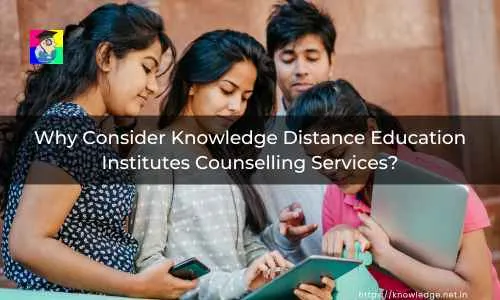Is Distance Education Banned in India?

Distance education has revolutionized the way people learn, breaking down barriers of time and space. In India, distance education has played a significant role in providing access to quality education, especially to those who are unable to pursue traditional classroom-based education. However, there have been discussions and debates surrounding the ban on distance education in India. In this blog, we will delve into the current state of distance education in India and examine whether it is banned or not.
Over the years, several universities and institutions have embraced distance education, making it a popular choice for learners across the country. The Indira Gandhi National Open University (IGNOU), established in 1985, has been at the forefront of providing distance education in India.
The regulatory framework governing distance education in India primarily falls under the purview of the University Grants Commission (UGC) and the Distance Education Bureau (DEB). The UGC, a statutory body responsible for maintaining the standards of higher education, recognizes universities and approves their distance education programs. The DEB, established by the UGC, is responsible for regulating and maintaining the quality of distance education programs offered by universities
and institutions.
Current Status of Distance Education
Contrary to the notion of a ban on distance education in India, it is important to note that distance education is not banned nationwide. However, there have been instances where specific programs or institutions have faced regulatory challenges and scrutiny, leading to restrictions or closures. These instances have sparked
debates and concerns about the future of distance education in India.
One of the key concerns raised by critics is the issue of quality control. It is essential to ensure that distance education programs adhere to rigorous standards to maintain their credibility. The UGC and the DEB have taken steps to address these concerns by implementing guidelines and regulations to enhance the quality of distance education in the country.
In recent years, there have been efforts to streamline and strengthen the distance education system in India. The UGC has mandated that universities offering distance education should obtain prior approval from the DEB and fulfill specific criteria related to infrastructure, faculty, curriculum, and delivery mechanisms. These measures aim to maintain the quality and integrity of distance education programs.
The Impact of Technological Advancements
Technological advancements, particularly the widespread availability of the internet and digital tools, have further revolutionized distance education in India. Online learning platforms, virtual classrooms, and interactive multimedia content have made education accessible and engaging for learners. Many universities and institutions now offer blended learning programs, combining online and offline components, to provide a comprehensive educational experience.
The COVID-19 pandemic further accelerated the adoption of distance education methods in India. As educational institutions had to shift to remote learning to ensure the safety of students, distance education played a pivotal role in continuing academic activities. This unprecedented situation highlighted the importance of embracing flexible learning models and encouraged the exploration of innovative approaches to education delivery.
While there have been instances where specific distance education programs or institutions faced scrutiny and restrictions, it is important to note that distance education is not banned in India. The UGC and the DEB have taken steps to ensure quality control and regulate distance education programs. Technological advancements have also played a significant role in transforming and expanding the reach of distance education in India.
Distance education continues to be an integral part of the Indian education system, providing opportunities for lifelong learning, upskilling, and widening access to education. As technology evolves and educational needs change, it is crucial for
policymakers, institutions, and regulators to collaborate and adapt to ensure the availability of high-quality distance education options for learners across the country.
Are you afraid to enroll in an online or distance degree? Do you still believe that it is banned in India? Let's bridge the gap together and share your thoughts on the
future of distance education in India!
















